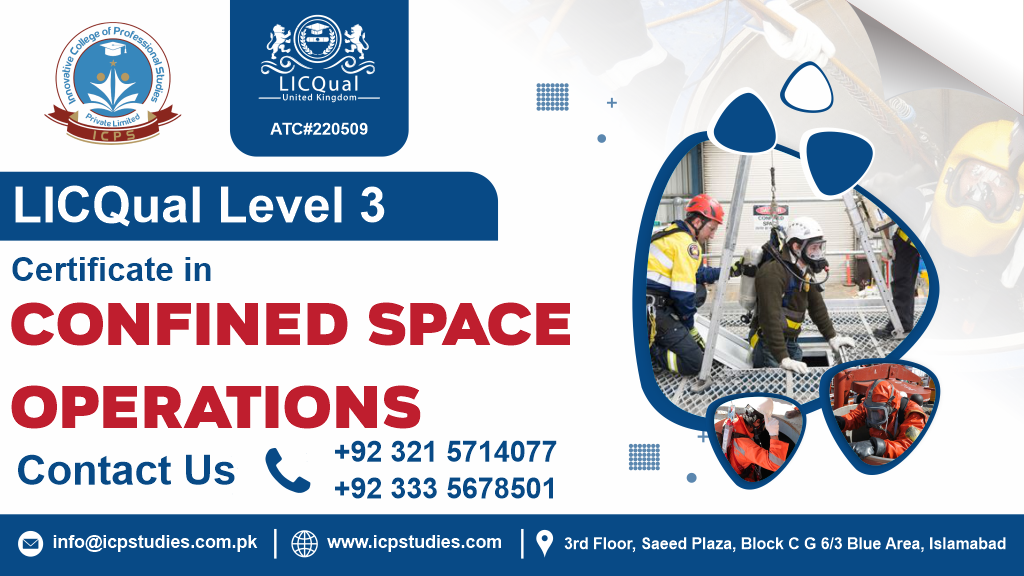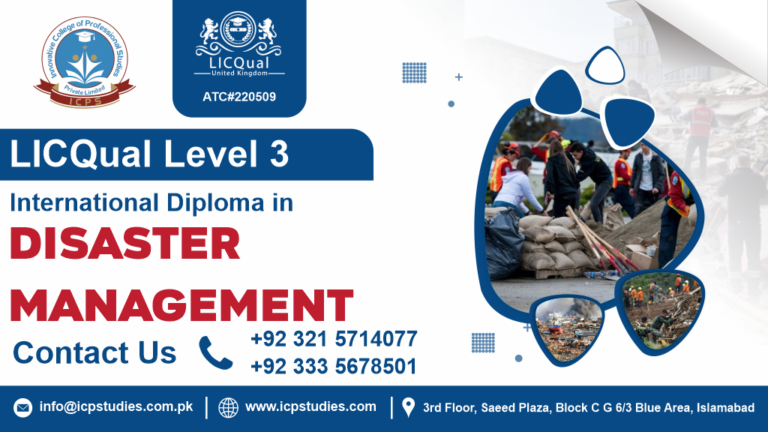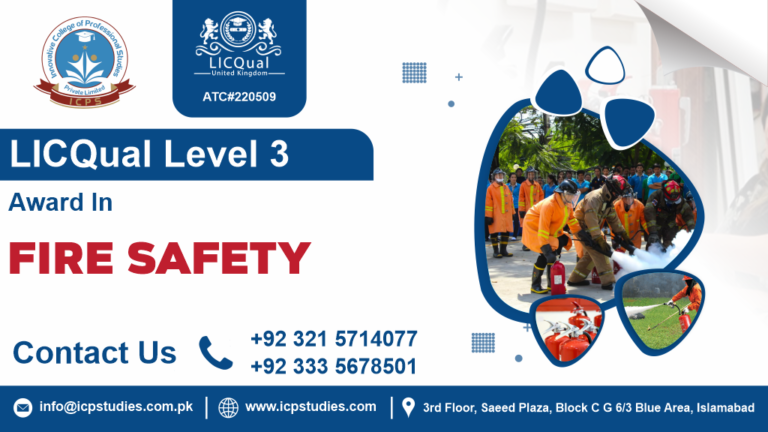In the realm of occupational health and safety, confined space operations represent some of the most challenging and hazardous tasks. Proper training and certification are essential to ensure that workers can safely and effectively navigate these environments. One such essential qualification is the Level 3 Certificate in Confined Space Operations. This certification is designed for individuals who are required to enter, supervise, or manage confined space work environments, equipping them with the knowledge and skills necessary to ensure safety and compliance with regulatory standards.
The Level 3 Certificate in Confined Space Operations is a rigorous training program aimed at providing participants with advanced knowledge and practical skills for safe confined space work. It is typically structured to include a combination of classroom instruction and hands-on training, ensuring a well-rounded educational experience.
The Level 3 Certificate in Confined Space Operations is an invaluable qualification for anyone involved in confined space work. It equips participants with the essential knowledge, practical skills, and confidence needed to navigate the complexities of these hazardous environments safely. As industries continue to prioritize safety and regulatory compliance, this certification stands out as a testament to a worker’s dedication to maintaining high standards of occupational health and safety.
All About Level 3 Certificate in Confined Space Operations
Course Overview
The Level 3 Certificate in Confined Space Operations is a specialized qualification designed for individuals who work in or oversee activities within confined spaces. These environments can include storage tanks, silos, manholes, utility vaults, and pipelines, which are characterized by their enclosed nature and limited entry and exit points. Working in such spaces presents unique challenges and hazards, necessitating advanced training to ensure safety and compliance with regulatory standards.
Level 3 Certificate in Confined Space Operations is an essential qualification for anyone involved in confined space work. It provides a comprehensive blend of theoretical knowledge and practical skills necessary to navigate the complexities and hazards of confined spaces safely. This certification not only enhances personal career prospects but also contributes to the overall safety and efficiency of operations within various industries.
Study Units
- Introduction to Confined Space Operations
- Risk Assessment and Safety Precautions
- Confined Space Equipment and PPE
- Confined Space Entry Procedures
- Confined Space Rescue and Emergency Response
- Age Requirement: Candidates should be at least 18 years old.
- Professional Background: Relevant experience in a related field, such as construction, engineering, or maintenance, is recommended.
- Educational Qualifications: A minimum of a Level 2 qualification in a relevant area (e.g., health and safety, construction) is generally preferred.
- Previous Training: Completion of a basic confined space training course (e.g., Level 2 Award in Working in Confined Spaces) is typically required.
- Physical Fitness: Candidates may need to provide evidence of physical fitness, as the course includes practical assessments in confined spaces.
- Communication Skills: Strong verbal and written communication skills are essential for understanding course material and participating in discussions.
- Commitment to Safety: A solid understanding of health and safety protocols related to confined space operations is crucial.
- Basic IT Skills: Familiarity with IT tools for documentation and reporting may be beneficial.
These requirements may vary by training provider, so it’s advisable to check with the specific institution offering the Level 3 Certificate in Confined Space Operations for their exact criteria.
The Level 3 Certificate in Confined Space Operations is designed for:
- Confined Space Workers: Individuals who enter and work in confined spaces as part of their job responsibilities.
- Health and Safety Personnel: Professionals focused on ensuring safety practices and compliance related to confined space operations.
- Supervisors and Team Leaders: Those responsible for overseeing teams that conduct work in confined environments.
- Rescue Personnel: Individuals involved in emergency rescue operations within confined spaces.
- Maintenance and Engineering Staff: Workers in sectors such as construction, utilities, or manufacturing who may need to enter confined spaces for repairs or inspections.
- Site Safety Officers: Professionals tasked with monitoring safety practices on sites where confined space work is performed.
- Trainers and Assessors: Individuals seeking to enhance their qualifications for training others in confined space safety and operations.
This course is ideal for anyone looking to gain the knowledge and skills necessary to work safely in confined spaces and ensure compliance with relevant regulations and safety standards
Learning Outcomes
The Level 3 Certificate in Confined Space Operations is designed for a diverse group of professionals who need to operate safely and effectively within confined spaces. This course caters to individuals at various levels of responsibility, from entry-level workers to supervisory roles, across multiple industries.
1. Confined Space Workers
Description: Individuals who frequently enter confined spaces as part of their job duties.
Examples:
- Maintenance technicians
- Industrial cleaners
- Utility workers (water, gas, and sewage)
- Construction workers
Why This Course is Beneficial: These workers gain essential knowledge about confined space hazards, proper use of equipment, and safety procedures, significantly reducing the risk of accidents and injuries.
2. Supervisors and Team Leaders
Description: Personnel responsible for overseeing confined space operations and ensuring the safety of their teams.
Examples:
- Site supervisors
- Foremen
- Team leaders
Why This Course is Beneficial: Supervisors learn to conduct risk assessments, implement safety protocols, and manage emergency response plans, ensuring compliance with regulatory standards and safeguarding their teams.
3. Safety Officers and Compliance Managers
Description: Professionals tasked with maintaining workplace safety and ensuring regulatory compliance within organizations.
Examples:
- Health and safety officers
- Compliance managers
- Environmental health and safety (EHS) specialists
Why This Course is Beneficial: Safety officers and compliance managers acquire in-depth understanding of confined space regulations, risk management techniques, and emergency response planning, enabling them to develop and enforce effective safety policies.
4. Emergency Response Teams
Description: Personnel involved in planning and executing emergency response and rescue operations within confined spaces.
Examples:
- Firefighters
- Rescue team members
- Emergency medical technicians (EMTs)
Why This Course is Beneficial: Emergency responders are trained in specialized rescue techniques and emergency procedures, ensuring they can safely and effectively manage confined space incidents.
5. Engineers and Technical Staff
Description: Engineers and technical personnel who design, inspect, or maintain systems that include confined spaces.
Examples:
- Civil and structural engineers
- Mechanical and electrical engineers
- Inspection and maintenance engineers
Why This Course is Beneficial: Engineers gain a comprehensive understanding of confined space hazards and safety requirements, enabling them to design safer systems and ensure proper maintenance protocols are followed.
6. Facility Managers and Operations Managers
Description: Individuals responsible for the overall management and operational efficiency of facilities that include confined spaces.
Examples:
- Facility managers
- Operations managers
- Plant managers
Why This Course is Beneficial: Facility and operations managers learn to develop and enforce confined space entry procedures, manage equipment and PPE, and coordinate emergency responses, enhancing overall workplace safety.
Conclusion
The Level 3 Certificate in Confined Space Operations is an essential qualification for a wide range of professionals involved in confined space work. By providing comprehensive training on risk assessment, safety precautions, equipment use, entry procedures, and emergency response, this course ensures that participants are well-prepared to manage the complexities and hazards associated with confined spaces. Whether you are a front-line worker, a supervisor, a safety officer, or an engineer, this certification equips you with the necessary skills and knowledge to perform your duties safely and effectively.
FAQs about Level 3 Certificate in Confined Space Operations







